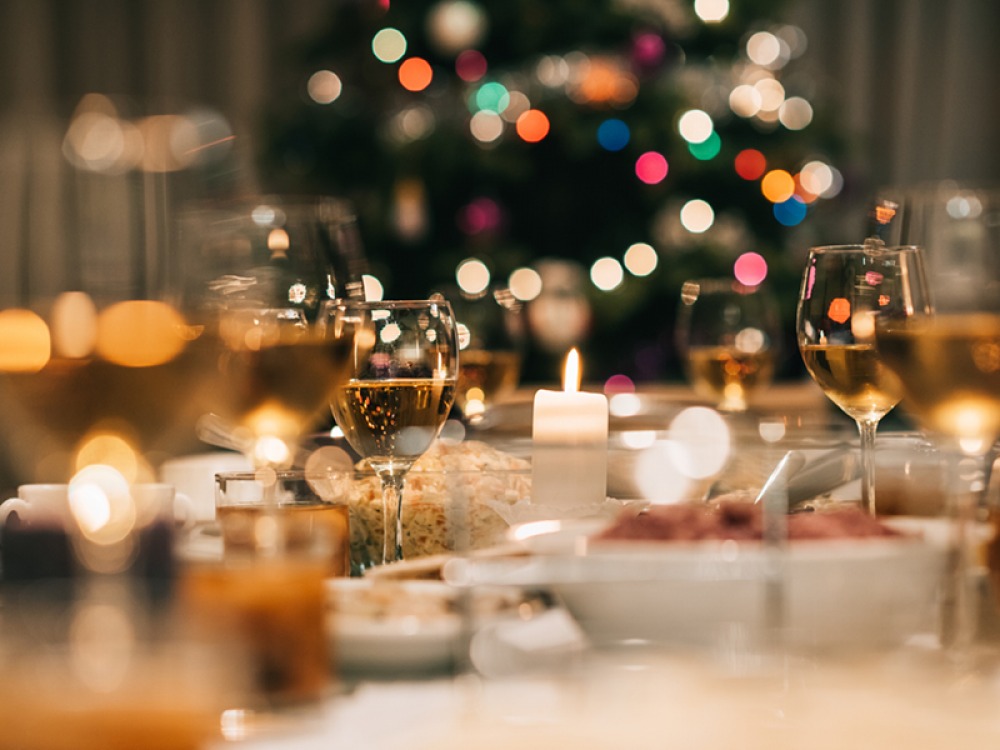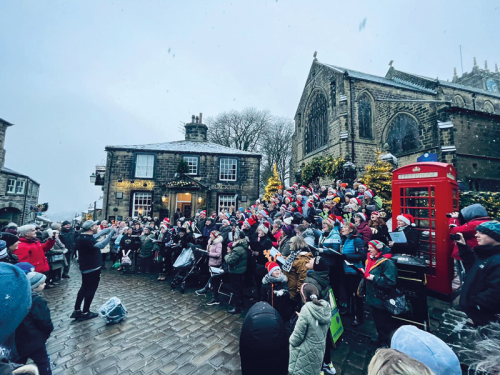Top Tips to Avoid a Hangover During the Festive Season

Party season is upon us and whilst the easiest way to avoid feeling hungover is to steer clear of alcohol altogether, when the cocktails are calling your name, there are ways to help avoid that morning-after feeling
You need to eat before you drink. If you drink on an empty stomach the alcohol passes straight into your intestines where it is quickly absorbed into the bloodstream, meaning you’ll get drunk faster and feel worse the day after. All foods, especially fatty ones, help delay the absorption of alcohol. Expert advice suggests you fill up on avocados, shellfish and chicken which are rich in zinc and nicotinic acid known to reduce the severity of hangovers, and high fibre foods such as lentils and popcorn which break down and absorb alcohol, preventing it from entering the bloodstream as quickly.
Drinking lowers your willpower and can see you reaching for sugar-laden sweets and cakes. Don’t. Sugar causes inflammation, the same with alcohol, and inflammation is one of the factors that contributes to your horrible hangover. It’s also worth noting that mixing sugar and alcohol means the sugar will enter your bloodstream faster. You know what they say, a moment on the lips…
When you are out really try to stick to one type of drink to help you keep track of exactly how much alcohol you are taking on board. If you are really worried, keep a note on your phone every time you are given a new drink. As the night wears on it is so easy to lose track – and we often underestimate just how much we have consumed.
Read More: 12 Christmas Drinks You Have To Try This Festive Season

If you can, stick to lighter liquids. Clear liquids contain fewer congeners (the compounds that give the drink its flavour, but have been linked to hangovers) than say red wine or rum. And whilst it doesn’t mean you can drink as much white wine, vodka or gin as you want, they are less noxious. Also be aware that the more filtered the drink the less congeners it will contain, and it tends to be the more expensive drink brands which can claim higher filtration.
Research has also shown that the presence of bubbles, whether in Champagne or in a mixer, can speed up the rate of alcohol absorption. Carbonation can cause the surface area of the stomach to expand which results in an increase in alcohol absorption. So whilst a white wine spritzer may sound like a good idea as you are diluting the alcohol, it probably isn’t.
Experts will tell you to try to stick to one drink an hour. If you can’t do that then try and alternate every alcoholic drink with a non-alcoholic one. By alternating with water, not only do you pace yourself better and give your body more time to process each drink, you will also re-hydrate your system, keeping that hangover at bay.
Wine drinkers should stick to organic wines when possible. It is the preservatives in wine which often contribute to a hangover. It’s why drinking wine in the States is more likely to cause hangover issues as it generally tends to contain more preservatives and pesticides, and has a higher ABV (alcohol by volume) than that we are used to drinking in Europe.
Read More: Delicious Christmas Gingerbread Roulade
When you do get home, there are several things you can do to avoid – or at least minimise – the effects of your night out. Alcohol is a diuretic which means it makes your body push out fluids far faster, so once home drink more water than you would usually do around bedtime. Coconut water is also good as it replenishes electrolytes lost when you drink, and some experts suggest fruit juice as there is evidence that the fructose in fruit burns alcohol.
Plain carbs such as dry toast will also help absorb the alcohol left in your stomach and will help combat any lingering nausea.
The morning after means loading up on breakfast. Eggs are rich in n-acetyl-cysteine which helps clear the liver so an omelette, preferably with vitamin-rich spinach, is the go-to cure, but eggs any way you choose should be on the menu. Orange juice is good too as it will replace blood sugars, and with vitamin B1 help clear your head, but avoid herbal teas. Research shows that they can actually slow down the alcohol being processed by the body so your hangover will just last longer.
It is probably the last thing you feel like after you’ve over indulged the night before but research does show that exercise will clear a hangover more quickly than just lying around. By increasing the circulation and metabolism you will feel better faster by working out.










